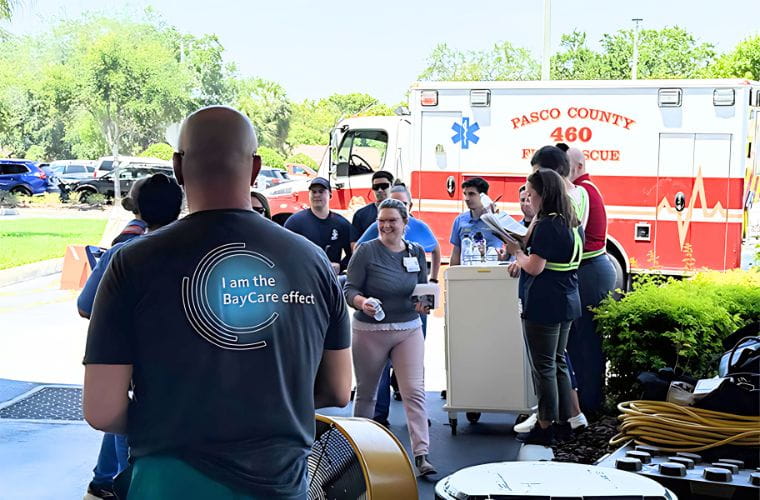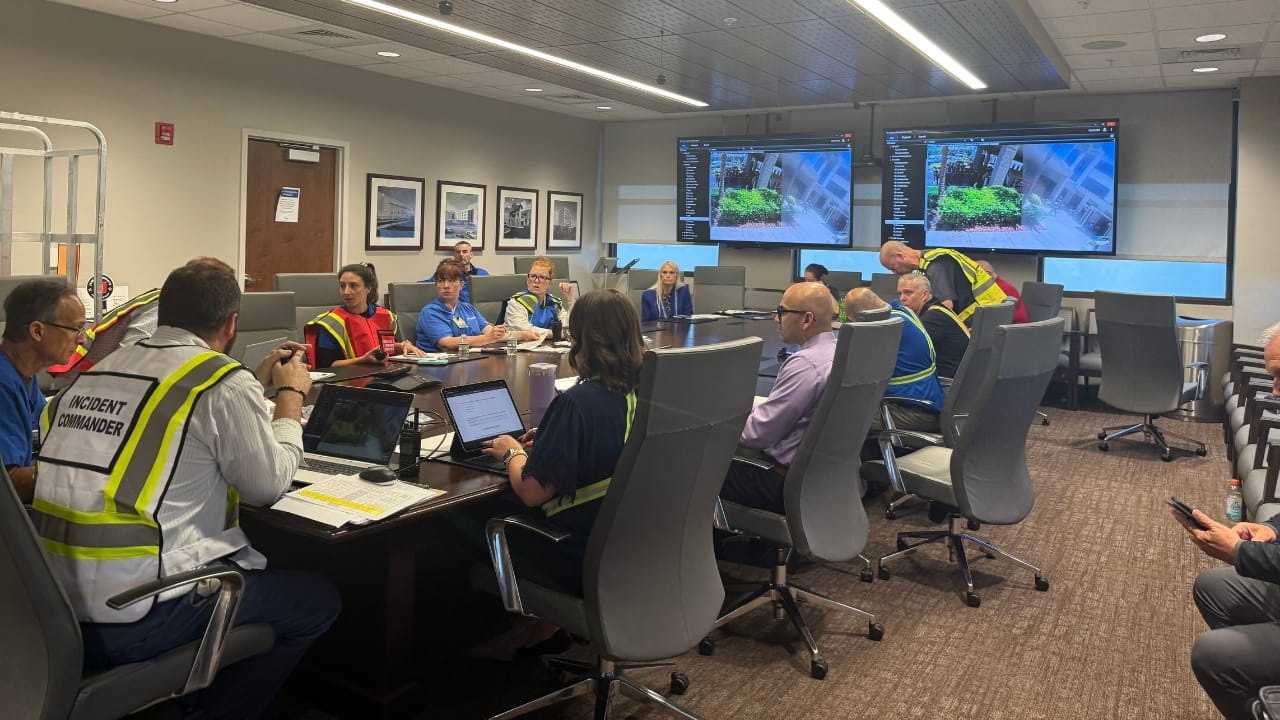Morton Plant North Bay Hospital Conducts Mass Casualty Drill
BayCare’s Morton Plant North Bay Hospital recently conducted a large-scale emergency preparedness drill to evaluate its response to a simulated mass casualty event. The exercise dubbed 15 ‘til 50 is a national training program designed to prepare a hospital team and community partners to receive, triage and treat a surge of 50 patients within 15 minutes of notification of a mass casualty.
This was BayCare’s first 15 ‘til 50 exercise, but the health system routinely holds emergency preparedness events to ensure medical staff and team members are prepared and ready to provide excellent clinical care to all patients in any circumstance.
The Southern Regional Disaster Response System (SRDRS) sponsored the training event at Morton Plant North Bay Hospital, which was the 15 ‘til 50 pilot for the southeastern United States and will be publicized for use throughout the nation.
“We were selected for the exercise because of the size of the hospital and the concept of operation we submitted to the Tampa Bay Health & Medical Preparedness Coalition, which was the organization working with the SRDRS,” said John Crowley, BayCare senior emergency management specialist.
The scenario was based on a fictional tragedy at a local community event, resulting in at least 50 individuals, children to seniors, needing some level of medical care.

“An exercise of this scope takes a village, and we are grateful for all of our community partners who collaborated with us to plan and execute this drill,” said Nick Carideo, Morton Plant North Bay Hospital’s director of operations.
Participating community partners included the Florida Department of Health, Pasco County Fire Rescue, Pasco County Department of Emergency Management, New Port Richey Police Department MedFleet Ambulance and Spartan Manor.
Funding for the drill came from a Department of Health and Human Services grant given to SRDRS, an initiative between Emory University, the Georgia Department of Public Health, Augusta University and the University of Georgia Institute for Disaster Management (IDM) to complement existing preparedness and response frameworks and partnerships.
Representatives from the University of Georgia IDM worked with the hospital and community partners to plan the event and were on-site to observe and provide feedback.
One of the observers, James P. O’Neal, MD, a clinical professor at the IDM and retired emergency medicine physician, noted, “This was the best hospital exercise I have been to in the United States.”
A post-drill debrief followed the event to gather feedback and identify areas of improvement that, according to Crowley, are already being implemented. “Based on insights we gained from this exercise at Morton Plant North Bay Hospital, we are making systemwide recommendations regarding materials and protocols to make us better prepared throughout BayCare,” he said.
“I am so proud of our team and how well they responded under pressure,” Carideo said. “Practicing situations we hope never happen is vital for us to provide outstanding care to our community in any circumstance.”
Visit BayCare.org to learn more about how BayCare is raising the standard of care across West Central Florida.

